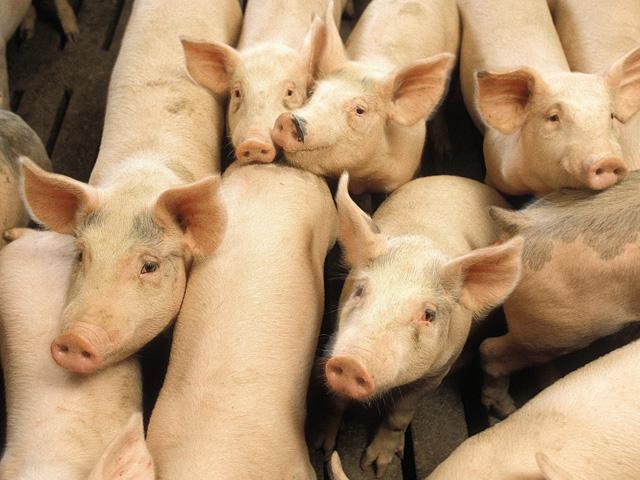NPPC Lauds Farm Bill Prop 12 Language
NPPC Applauds, Environmentalists Oppose Proposition 12 Language in House Farm Bill
LINCOLN, Neb. (DTN) -- Without debate, the House Agriculture Committee early Friday morning advanced a version of the farm bill that includes language in response to California's Proposition 12, the ballot measure that led to the creation of the state's animal welfare law.
The language, essentially in place to prevent other states from adopting similar laws, was met with support by the National Pork Producers Council and anger from animal-rights groups.
The committee's farm bill version includes a section near the end of the 900-plus page legislation entitled, "Ensuring the Free Movement of Livestock-Derived Products in Interstate Commerce."
Perhaps the key line in the bill is this: "Producers of covered livestock have a federal right to raise and market their covered livestock in interstate commerce and therefore no state or subdivision thereof may enact or enforce, directly or indirectly, a condition or standard on the production of covered livestock other than for covered livestock physically raised in such state or subdivision."
The section goes on to say livestock producers have a "federal right" to raise and market "their covered livestock" in interstate commerce.
California's 2018 ballot initiative prohibits the sale of uncooked whole pork meat in the state that comes from farms that do not abide by the law's animal-housing restrictions.
"At a time when bipartisanship is often a four-letter word in Washington, we applaud the House Agriculture Committee for working together to deliver a farm bill that validates America's pork producers' needs," NPPC President Lori Stevermer, a pork producer from Easton, Minnesota, said in a statement on Friday.
"We urge the U.S. Senate to follow suit and provide much needed certainty to pork producers and consumers across the country."
P[L1] D[0x0] M[300x250] OOP[F] ADUNIT[] T[]
She said the farm bill language was necessary to "stop a potential 50-state patchwork of differing on-farm regulations."
Environmental groups have been outspoken in their opposition to various proposals put forward in Congress in response to Proposition 12.
That includes the so-called "Ending Agricultural Trade Suppression Act," or EATS Act introduced in the House and Senate in summer of 2023.
Wayne Pacelle, president of Animal Wellness Action and the Center for a Humane Economy, said in a statement on Friday the House committee's move on the farm bill was an "attack on states' rights" with the Proposition 12 language.
Pacelle is the author of animal-welfare ballot measures including Proposition 12 in California and Question 3 in Massachusetts.
"The leadership of the agriculture committee for months has kept repeating that it would present a bipartisan bill, but it included an EATS Act provision that did not have a single Democrat cosponsor in either the House or the Senate," Pacelle said in a news release.
"The only thing bipartisan about that bill is the opposition to it, with more than 150 Democrats and 26 Republicans taking the notable step of signing letters urging the chairman not to include it. Not a single farmer in Iowa, Kansas, or any other state will need to invest in new housing systems, because the pork industry already has capacity to accommodate demand for pork from gestation crate-free housing systems in California and Massachusetts."
California's law was upheld by the Supreme Court in 2023.
The NPPC has been saying for years the California law will cost the pork industry billions of dollars to comply and potentially drive small farms out of business.
In addition, a study published earlier this spring by USDA economists on behalf of the Giannini Foundation of Agricultural Economics at the University of California found that the prices of pork products in the state increased, on average, by 20% after July 1, 2023.
The price of pork loins increased by about 41% as a result of the implementation of the California law.
The study was led by USDA personnel including Chief Economist Seth Meyer; Shawn Arita, senior economist at USDA; and Hannah Hawkins, a visiting scientist in the office of chief economist at USDA.
Read more on DTN:
"House Aggies Advance Farm Bill," https://www.dtnpf.com/…
"California Pork Prices Spike on Prop 12," https://www.dtnpf.com/…
Todd Neeley can be reached at todd.neeley@dtn.com
Follow him on social platform X @DTNeeley
(c) Copyright 2024 DTN, LLC. All rights reserved.




